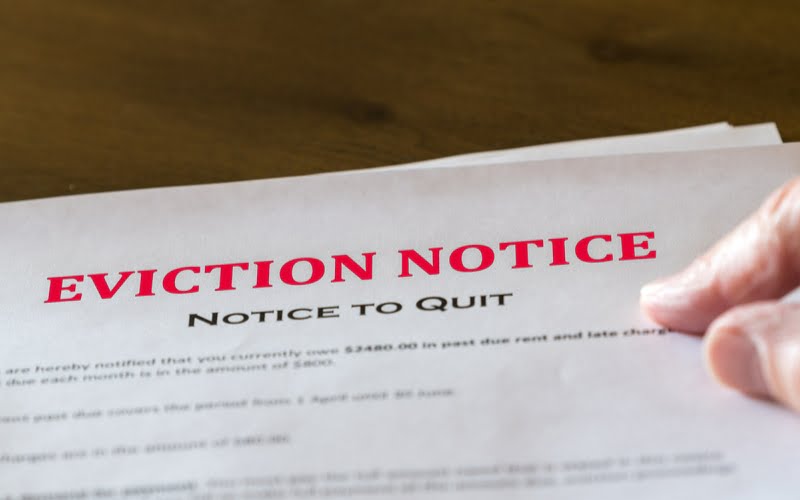Last Updated on March 18, 2024 by Kelvin Nielsen
If you’re facing eviction in Delaware, you might be wondering how you can delay the process.
Fortunately, there are some legal procedures you can follow to buy yourself more time. Understanding eviction laws in Delaware is the first step in delaying the eviction process.

As a tenant, you have certain rights that your landlord must respect. For example, your landlord cannot lock you out of your rental unit or shut off your utilities in an attempt to force you out. Knowing what a landlord cannot do in Delaware can help you protect your rights and delay eviction.
Legal procedures for delaying eviction include filing a motion to stay, requesting a continuance, or filing an appeal. These procedures can give you more time to find a new place to live or to work out a payment plan with your landlord. By following the proper legal procedures, you can delay eviction and protect your rights as a tenant.
Key Takeaways
- Understanding eviction laws in Delaware is crucial to delaying the eviction process.
- As a tenant, you have certain rights that your landlord must respect.
- Legal procedures for delaying eviction include filing a motion to stay, requesting a continuance, or filing an appeal.
Related Posts:
- What Rights Do Tenants Have in Delaware?
- What a Landlord Cannot Do in Delaware
- How Long Does It Take to Evict a Tenant in Delaware?
Understanding Eviction Laws in Delaware
If you are facing an eviction in Delaware, it is important to understand the state’s landlord-tenant laws. These laws govern the rights and responsibilities of both landlords and tenants, including the eviction process.
Delaware Landlord-Tenant Code
The Delaware Landlord-Tenant Code outlines the legal framework for the landlord-tenant relationship in the state. It covers a wide range of topics, including lease agreements, security deposits, and eviction procedures. As a tenant, it is important to familiarize yourself with the Code to understand your rights and obligations.
Grounds for Eviction
In Delaware, landlords can evict tenants for several reasons, including lease violations, nonpayment of rent, and termination of the lease agreement. The specific grounds for eviction will depend on the terms of the lease agreement and the circumstances of the eviction.
Notice Requirements
Before a landlord can evict a tenant in Delaware, they must provide the tenant with written notice of the eviction. The notice must include the reason for the eviction and a time period for the tenant to either comply with the notice or vacate the property. The notice period will depend on the grounds for eviction, with different notice periods required for different types of evictions.
Related Posts:
- 5-Day Eviction Notice in Delaware
- 30-Day Notice to Vacate in Delaware
- How to Evict a Roommate in Delaware
Legal Procedures for Delaying Eviction
If you are facing eviction in Delaware, there are legal procedures you can follow to delay the process.
Filing a Complaint and Seeking Counsel
If you receive a notice of eviction, you have the right to challenge it by filing a complaint with the court. You may also seek counsel from a lawyer or legal services corporation of Delaware. They can help you understand your rights and provide guidance on how to proceed.
Attending Hearings and Negotiating Mediation
Once you have filed a complaint, you will need to attend a hearing. During the hearing, you can present evidence and argue your case. You may also be required to negotiate mediation with your landlord. This can help you reach an agreement that delays the eviction process.
Exploring Tenant Defenses and Counterclaims
If you attend the hearing, you can also explore tenant defenses and counterclaims. These can help you delay the eviction process by challenging your landlord’s case. Examples of tenant defenses include breach of warranty of habitability, constructive eviction, and retaliation.
Related Posts:
Disclosure: The content herein isn’t a substitute for advice from a professional attorney. It’s only meant to serve educational purposes. If you have a specific question, kindly seek expert attorney services.
Sources: Residential Landlord-Tenant Code, DELAWARE DEPARTMENT OF JUSTICE

Amanda Rose is a seasoned landlord with 13+ years of expertise in overseeing diverse properties. Her adept management spans single and family homes, along with multi-family apartments and condos, across Wyoming and South Dakota. Her commitment and proficiency have cemented her status as a thriving property management professional.
She is a member of the following organizations: Wyoming Landlord’s Association, National Association of Residential Property Managers (NARPM), Wyoming Apartment Association, South Dakota Multi-Housing Association (SDMHA), and South Dakota Landlord Association (SDLA).







